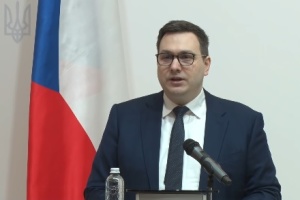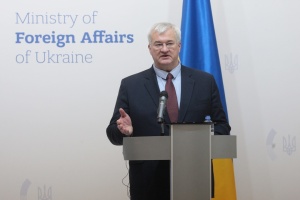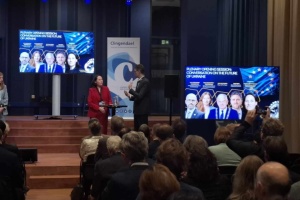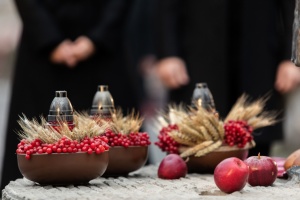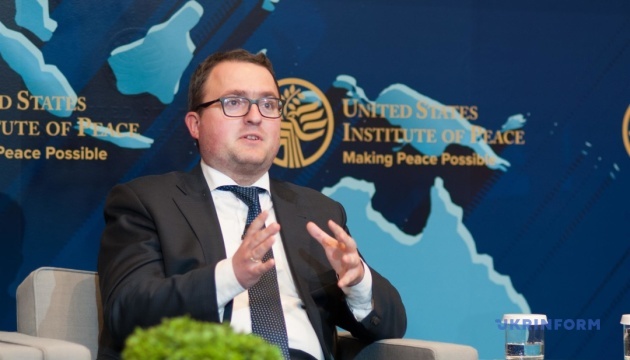
Russia major violator of international law in modern world - ambassador
That’s according to Anton Korynevych, Ambassador-at-Large of the Ministry of Foreign Affairs of Ukraine, Ukraine’s Agent at the International Court of Justice, who spoke in an interview with an Ukrinform correspondent in The Hague.
"Of course, the main heroes are the Armed Forces, our defenders, their victories at the front, but we as lawyers must work every day to ensure that we win in courts, too, including in international judicial institutions, the UN International Court of Justice, to show the whole world and prove the whole array of violations that the Russian Federation commits. In my opinion, Russia is the biggest violator of international law in the modern world," he said.
He also noted that it is a “great honor” for him to represent his country at the UN International Court of Justice.
According to the diplomat, in the situation of Russia’s full-scale armed invasion of Ukraine, "we as Ukrainian lawyers should do everything to support our armed forces."
As Ukrinform reported, in June, the UN International Court of Justice held public hearings in the case of Russia's violation of conventions on the fight against the financing of terrorism and on the prohibition of all forms of racial discrimination.
Two rounds of presentations by the parties took place: on June 6 and 12, the legal team of Ukraine appeared, and on June 8 and 14, Russia.
On November 8, 2019, the UN International Court of Justice recognized its jurisdiction in the case of Russia's violation of the two conventions.
On January 16, 2017, Ukraine filed a lawsuit against Russia with the UN International Court of Justice regarding the violation of the Convention on the Suppression of the Financing of Terrorism and the Convention on the Prohibition of Racial Discrimination.
Charges against Russia include providing weapons and other aid to illegal armed groups; the downing of flight MH17; shelling of residential areas of Mariupol and Kramatorsk; destruction of a civilian passenger bus near Volnovakha; an explosion during a peaceful meeting in Kharkiv; discrimination against the Ukrainian and Crimean Tatar communities; banning the activities of the Mejlis of the Crimean Tatar people; waves of abductions, murders, arbitrary searches, detentions; and restrictions on the teaching of the Ukrainian and Crimean Tatar languages.

